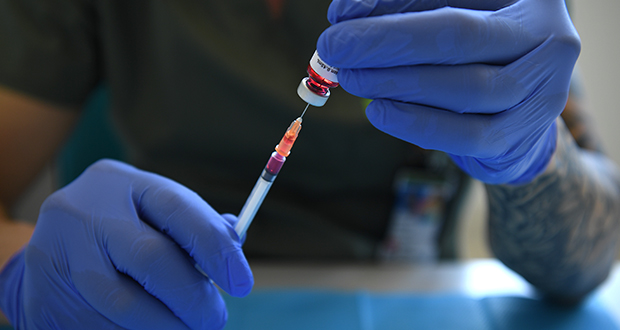New analysis from the Australian National University shows resistance and hesitancy towards a COVID-19 vaccination is growing in Australia.
The study is based on a longitudinal survey of 3,500 Australians that tracked individuals’ responses prior to the pandemic taking place, and is the only survey that “doesn’t rely solely on people volunteering to participate”.
Recognised as the most “robust survey data available” regarding individuals' inclination to get vaccinated, analysis of the findings shows there is a “large decline in the number of people who are likely to take a vaccine once it becomes available”.
Findings were based on Australians’ attitudes towards COVID-19, as well as their experiences, and coincides with the country’s roll-out of the highly effective Pfizer vaccine.
The study found that, in January 2021, one-in-five of the survey participants (21.7 per cent) said “they probably or definitely will not get a safe and effective COVID-19 vaccine once health officials notify the public that one is available”.
“This is a large and significant increase from the 12.7 per cent of Australians who said the same thing in August 2020 when vaccines were still being developed and trialled,” co-author of the study Professor Nicholas Biddle said.
“We also found more than three-in-10 Australians, some 31.9 per cent, became less willing to get a vaccine between August 2020 and January 2021.
“In contrast, less than one-in-10 Australians, 9.9 per cent, became more willing to get vaccinated.”
Over the course of the survey, the study found there was a substantial drop (19.7 per cent) in the number of Australians who went from ‘definitely willing’ to receive a COVID-19 vaccine to ‘probably willing’.
Groups who became less willing to be vaccinated included females, Indigenous Australians, individuals who did not complete Year 12, and individuals who speak a language other than English at home.
“These population groups are arguably the most urgent focus of any public health campaigns to improve willingness,” Biddle said.
“This is because they have low willingness to start with, but also because there is the potential opportunity to bring their willingness back to what it was in August 2020 when there was a smaller gap with the rest of the Australian population.
“There is a real need to consider a significantly enhanced public health campaign in languages other than English.
“There is also a need to convey information to the general public in a way that is informative, reassuring and salient for those without a degree.
“We have been tracking Australians’ attitudes to getting a vaccine for months now, giving us powerful insights into what potential uptake will be like."
Biddle is concerned that more Australians have “cooled” on the idea of getting a vaccine, and the challenge is to quickly work out why this ‘cooling’ has occurred and address it.
This latest ANU study also includes qualitative data, providing rich insights into why some Australians won’t take the vaccine or are unlikely to do so. For instance, there are the COVID-19 doubters, who believe the pandemic is akin to fake news; individuals who express low confidence in hospitals; and individuals who do not perceive the next 12 months will be optimistic.
“Clearly our leaders, policymakers and health experts need to work out why more Australians are unlikely to get a vaccine, particularly as it is about to be administered across the country,” Biddle added.
“While not a magic bullet, a vaccine and its successful delivery across our society is absolutely crucial to Australia’s COVID recovery.”
The study forms part of the ANU Centre for Social Research Methods COVID-19 monitoring program and is available online.
Data collection for the study was provided by the Social Research Centre, with financial support from the Australian Institute of Health and Welfare.
Email [email protected]
 Aged Care Insite Australia's number one aged care news source
Aged Care Insite Australia's number one aged care news source

